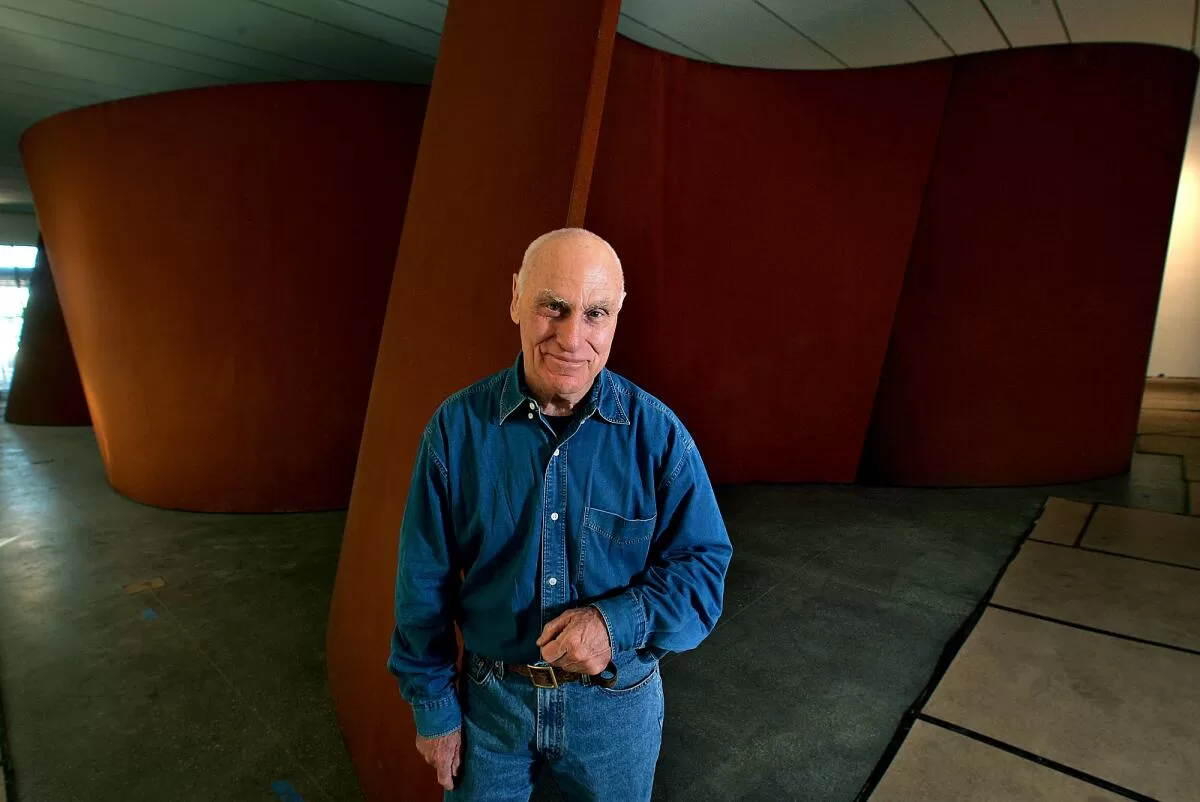In a 1998 interview with The Times, Serra emphasized that even he couldn’t give an explanation or interpretation of his work.
“I can tell you formally about them. I can’t tell you how to interpret them,” he said. “The subject matter of these pieces is your ability to decipher what is going on, either psychologically or emotionally or formally. I think the content is your ability, or lack of ability, to figure out your relationship to the space.”
Serra’s work can be found all over the world, from New York City to Qatar, but much of the San Francisco native’s art can be found closer to home at museums and galleries. Here is a guide to Serra’s towering structures and artwork in Southern California.
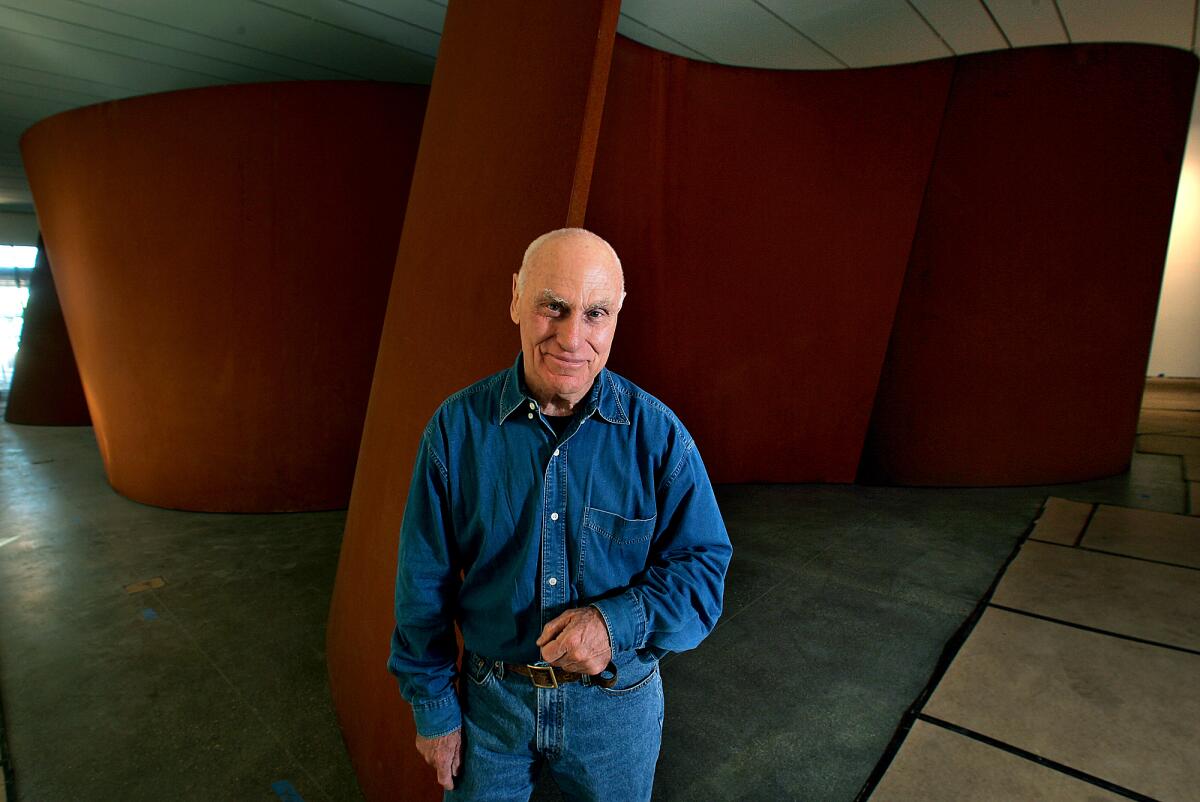
(Ken Hively / Los Angeles Times)
Los Angeles County Museum of Art
The Los Angeles County Museum of Art is home to two of Serra’s well-known sculptures, “Band” and “Inverted House of Cards.” “Band,” which was installed in 2006, is a massive structure, standing 12 feet tall and more than 70 feet long. Referred to as Serra’s magnum opus, with its vast and wavy, ribbon-like pattern and 183 tons of steel, “Band” took more than two years to create and install. It has become a popular attraction at LACMA because viewers can walk through its four expansive cavities and explore the sculpture up close, from within.
LACMA also boasts Serra’s “Inverted House of Cards,” which came nearly 40 years before “Band” in 1969. “Inverted House of Cards” is the counterpart of Serra’s “House of Cards,” which he created in the same year. “House of Cards,” displayed at the Museum of Modern Art in New York City, features four steel plates standing in an open, cube-like shape, with the plates leaning against one another to support the structure. “Inverted House of Cards” accomplishes the opposite, with four steel plates forming a cross-like shape and holding each other up with their strategic placement.
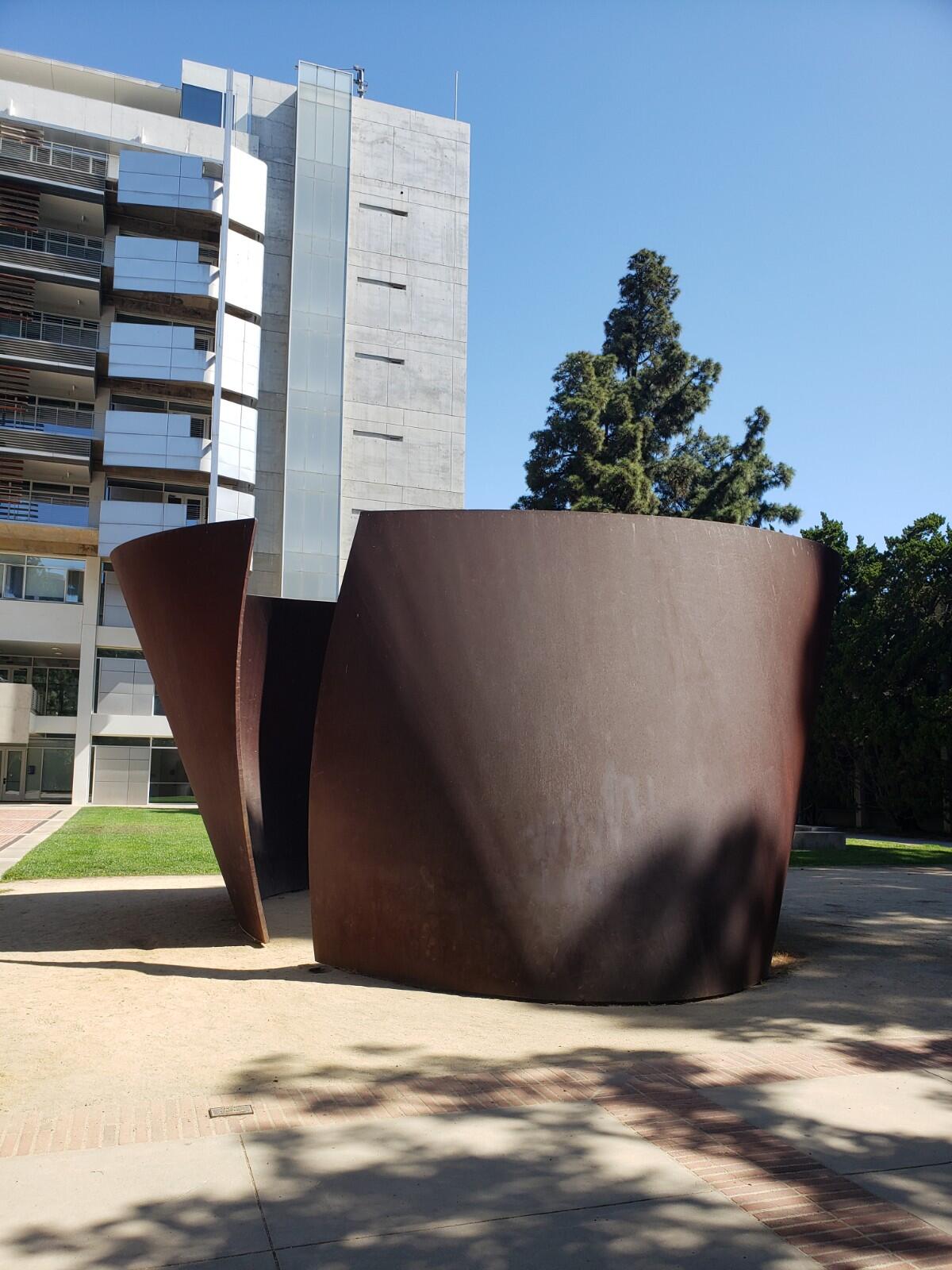
Richard Serra, “T.E.U.C.L.A.,” 2006, weathering steel.
(Christopher Knight / Los Angeles Times)
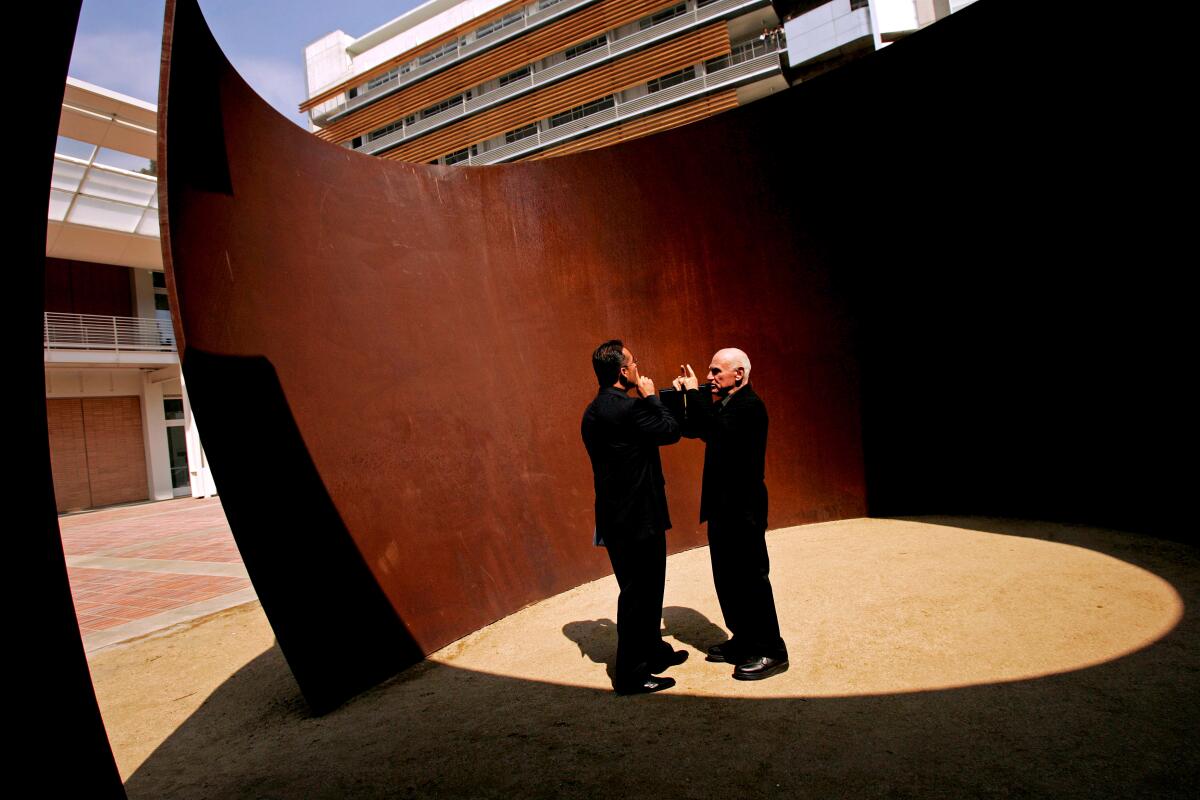
Franciso Pinto, left, and Richard Serra talk inside Serra’s sculpture “T.E.U.C.L.A” at the opening of the Eli and Edythe Broad Art Center on the UCLA campus in 2006.
(Anne Cusack / Los Angeles Times)
Eli and Edythe Broad Art Center at UCLA
Serra’s first public sculpture in Southern California was installed in the plaza of UCLA’s Eli and Edythe Broad Art Center in 2006 as a part of the Franklin D. Murphy Sculpture Garden. The sculpture, titled “T.E.U.C.L.A.,” is a part of one of Serra’s best-known series, “Torqued Ellipse,” and like much of his work, it is welded in Cor-ten steel.
The oval-like shape features an opening large enough for passersby to walk inside the 42.5-ton sculpture’s walls. This makes the sculpture an immersive experience that the campus community can engage in, whether that means going inside to appreciate the sheer volume of the sculpture on a campus walk or hosting a musical performance from within its walls.
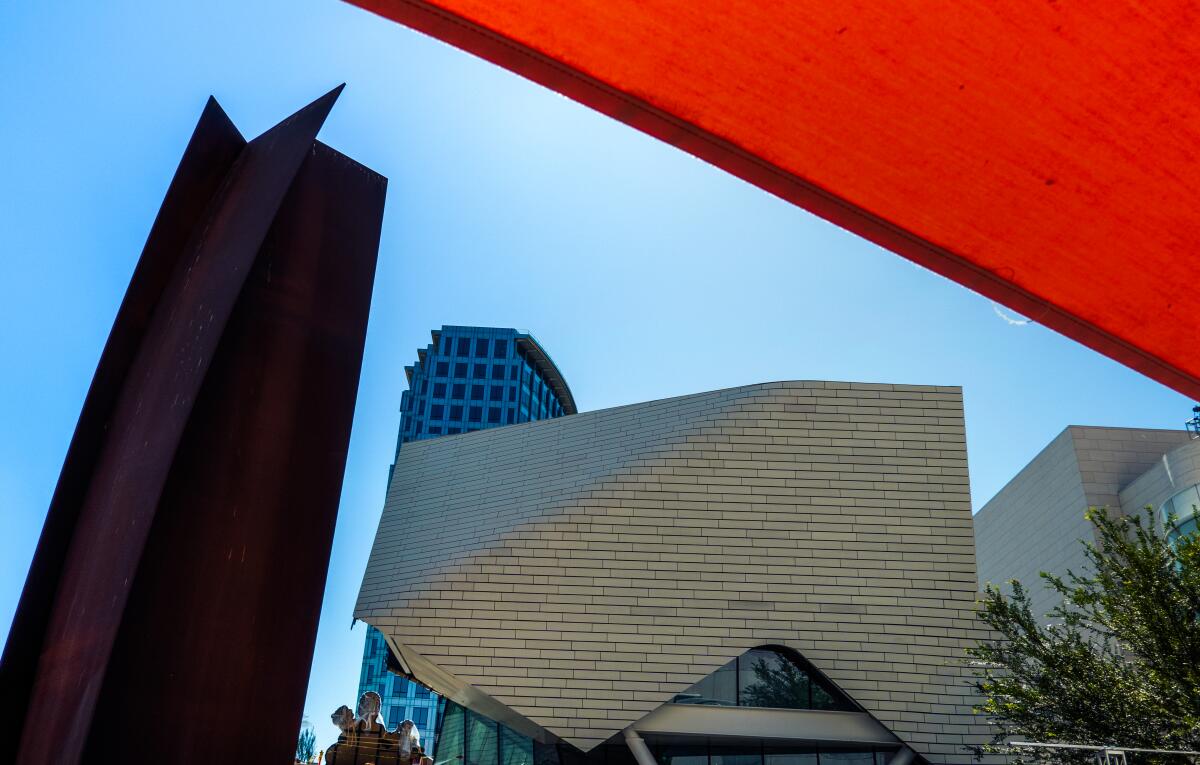
Richard Serra’s monumental sculpture “Connector,” far left, as seen from the Renée and Henry Segerstrom Concert Hall.
(Myung J. Chun / Los Angeles Times)
Segerstrom Center for the Arts, Costa Mesa
In 2006, Serra created “Connector,” a 65-feet-high, 360-ton, pentagonal sculpture made of weathered steel. Like many of the steel structures Serra worked with, the five plates composing the structure were fabricated in Germany and shipped to the site of the installation for assembly.
Elizabeth and Henry Segerstrom commissioned the artist to create the sculpture as the focal point for the newly expanded Segerstrom Center for the Arts, formerly known as the Orange County Performing Arts Center. In signature Serra style, visitors are encouraged to walk around and through the towering structure.
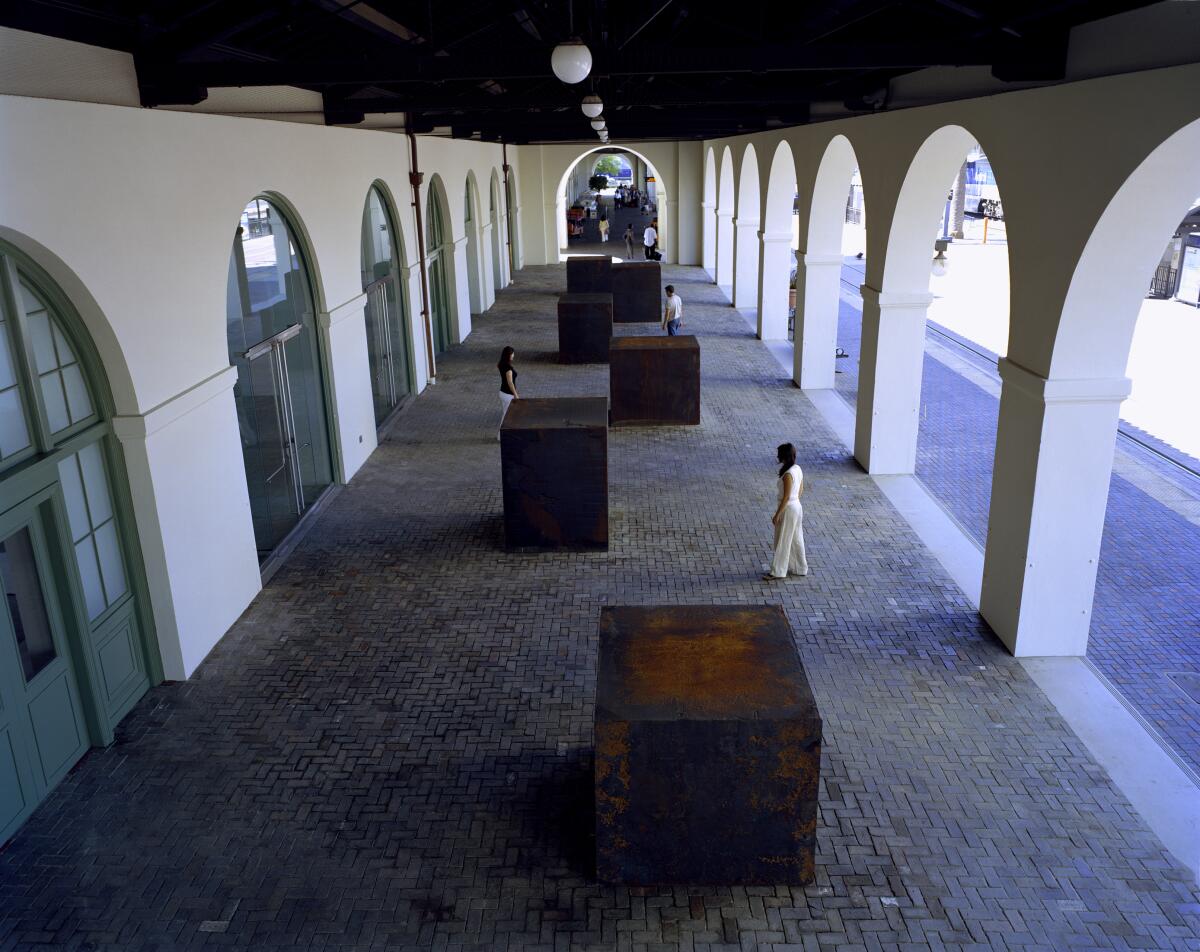
Richard Serra, “Santa Fe Depot,” 2004, forged weatherproof steel.
(Museum of Contemporary Art San Diego)
Santa Fe Depot/Museum of Contemporary Art San Diego
In 2004, Serra installed six cube-like structures outside of the historic Santa Fe Depot at the Museum of Contemporary Art San Diego. The structures, titled “Santa Fe Depot,” are staggered on the railroad loading platform, alternating from left to right. The cubes are made of weatherproof steel, weighing a collective 156 tons.
The Museum of Contemporary Art is selling its downtown San Diego location; it is unclear what will happen to the immovable structures.
Museum of Contemporary Art
An untitled piece from 1976 on display at MOCA consists of a trapezoidal plate made of weatherproof steel that weighs 1,300 pounds.
Gemini G.E.L., West Hollywood
Serra worked at the Gemini G.E.L. artists’ workshop for decades and made many of his prints there. A group of eight of his “notebook drawings” are currently on display at Gemini until April 5. The exhibition features etchings that have dark black shapes on white background and speak to his minimalist style. The drawings, created in 2023, are some of Serra’s last works.
